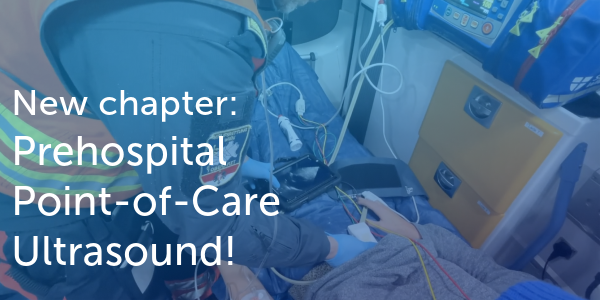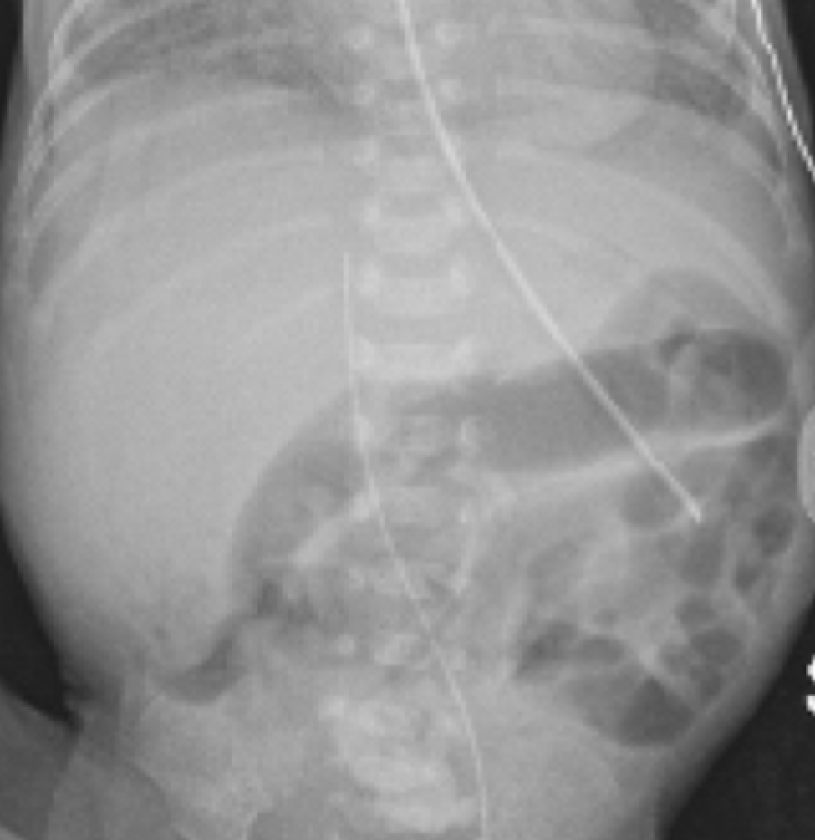Quiz time! Abdominal US outperforms AR for NEC diagnosis
Quiz time! Do you know the answer to these questions?
1. Which of the following complications is most commonly associated with necrotizing enterocolitis (NEC)?
A) Chronic lung disease
B) Short bowel syndrome
C) Patent ductus arteriosus
D) Congenital heart defect
2. What is the typical age of onset for necrotizing enterocolitis (NEC) in preterm infants?
A) Within the first 24 hours of life
B) Between 2-3 days of life
C) Around 1-2 weeks of life
D) After 1 month of life
Read more to find the answers!
A preterm infant presented with a new onset of emesis and bloody stool. This picture showed the infant with a distended, discolored abdomen, which may be the manifestation of a life-threatening intra-abdominal process. The differential diagnosis included necrotizing enterocolitis (NEC).
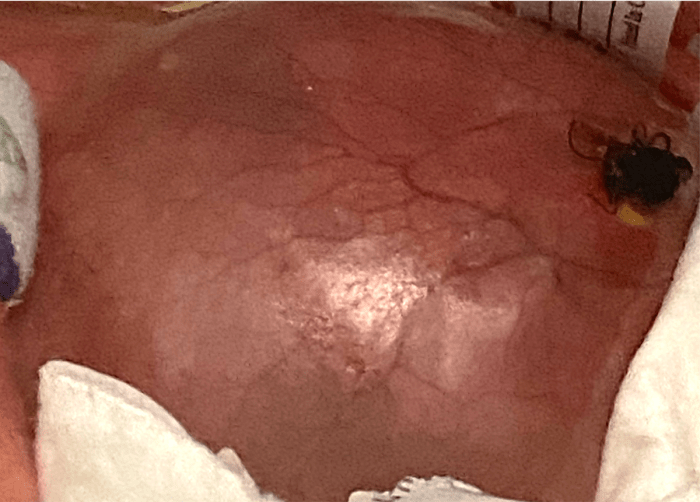
The abdominal X-ray (AR) showed a non-specific dilated bowel gas pattern.
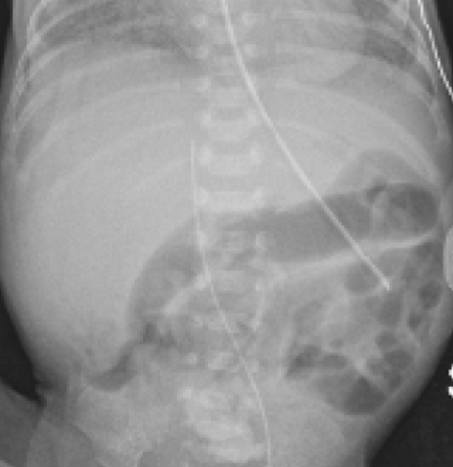
Abdominal ultrasound (AUS) was obtained. The intestinal content spillage from the intestinal perforation was "caught on camera." It also showed abnormally dilated, echogenic intestines. These findings were undetectable by AR alone.
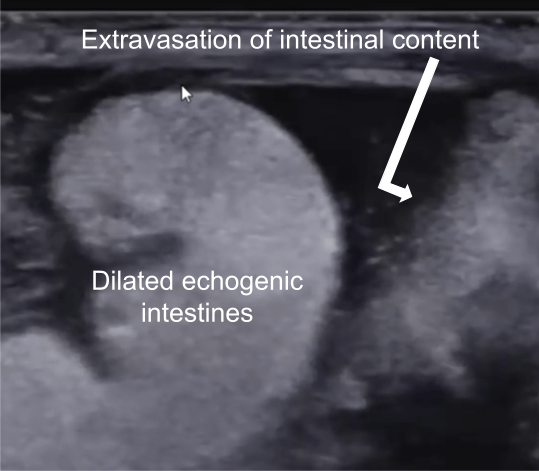
AUS also showed an extraluminal abscess and meconium collection. All these findings were consistent with NEC with intestinal perforation. This patient underwent emergent abdominal surgery for bowel resection and ileostomy.
 This case exemplifies the recent finding by Chen et al. that AUS (AUROC: 0.755, 95% CI 0.660–0.849) is better than AR (AUROC: 0.693, 95% CI 0.597–0.789) at predicting surgical NEC and the need for intestinal resection (1). A recent meta-analysis had also identified several AUS findings that are associated with surgery or death in NEC (2). The findings include focal fluid collection and dilated bowel (as seen in this case); other features are free air, no peristalsis, absent intestinal perfusion, complex ascites, abnormal bowel wall architecture (2).
This case exemplifies the recent finding by Chen et al. that AUS (AUROC: 0.755, 95% CI 0.660–0.849) is better than AR (AUROC: 0.693, 95% CI 0.597–0.789) at predicting surgical NEC and the need for intestinal resection (1). A recent meta-analysis had also identified several AUS findings that are associated with surgery or death in NEC (2). The findings include focal fluid collection and dilated bowel (as seen in this case); other features are free air, no peristalsis, absent intestinal perfusion, complex ascites, abnormal bowel wall architecture (2).
Answers to our quiz questions:
1. Which of the following complications is most commonly associated with necrotizing enterocolitis (NEC)?
Correct Answer: B) Short bowel syndrome
2. What is the typical age of onset for necrotizing enterocolitis (NEC) in preterm infants?
Correct Answer: C) Around 1-2 weeks of life
Did you know the answers? If not, you can learn more in our Neonatal & Pediatric Ultrasound BachelorClass, which demonstrates how to perform these life-saving abdominal ultrasound scanning techniques! Now available for a 40% discount 👉 GET COURSE!
References
1Chen, J., Mu, F., Gao, K. et al. Value of abdominal ultrasonography in predicting intestinal resection for premature infants with necrotizing enterocolitis. BMC Gastroenterol. 2022;22, 524. https://doi.org/10.1186/s12876-022-02607-0
2Cuna AC, Reddy N, Robinson AL, Chan SS. Bowel ultrasound for predicting surgical management of necrotizing enterocolitis: a systematic review and meta-analysis. Pediatr Radiol. 2018;48(5):658-666. doi:10.1007/s00247-017-4056-x
